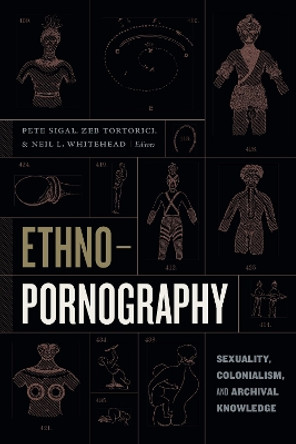Description
The logic and the interpretive resources of For the Record arise out of two entangled and minoritized historiographies: one in South Asian studies and the other in queer/sexuality studies. Focusing on late colonial India, Arondekar examines the spectacularization of sexuality in anthropology, law, literature, and pornography from 1843 until 1920. By turning to materials and/or locations that are familiar to most scholars of queer and subaltern studies, Arondekar considers sexuality at the center of the colonial archive rather than at its margins. Each chapter addresses a form of archival loss, troped either in a language of disappearance or paucity, simulacrum or detritus: from Richard Burton's missing report on male brothels in Karachi (1845) to a failed sodomy prosecution in Northern India, Queen Empress v. Khairati (1884), and from the ubiquitous India-rubber dildos found in colonial pornography of the mid-to-late nineteenth century to the archival detritus of Kipling's stories about the Indian Mutiny of 1857.
A study of the colonial state's imposition of regimes of sexuality, as seen through archives of law, literature and pornography
About the Author
Anjali Arondekar is Associate Professor of Feminist Studies at the University of California, Santa Cruz.
Reviews
"For the Record is a deft, at times dazzling, archival-based critical reading of the South Asian archives. Anjali Arondekar seeks not the lost objects of sexuality, but the colonial compulsions and disciplines that conjure their appearance and disappearance across time and space. In doing so, For the Record turns sexuality studies on its head with the breathtaking elegance of a master historian and reader."-Elizabeth A. Povinelli, author of The Empire of Love: Toward a Theory of Intimacy, Genealogy, and Carnality
"In situating sexuality at the heart of the colonial archive, Anjali Arondekar in For the Record brilliantly magnifies the dynamics of recovery and occlusion, desire and emptiness, that attend any archival project. Arondekar inquires specifically into anthropology, law, literature, and pornography in British India, not only contributing to our understanding of the ways the colonial apparatus made sex visible but also pushing forward into questions of what the postcolonial politics of that visibility might now entail. She both quotes Derrida's oblique footnote and makes it urgent: 'The question of a politics of the archive is our permanent orientation here.'"-Carolyn Dinshaw, author of Getting Medieval: Sexualities and Communities, Pre- and Postmodern
"This engaging and inventive book is not a typical critique of the colonial archive: it depends on the colonial record even as it exposes its limits. This is a crisp and intelligent study that provides both an accounting of the traces of sexuality in colonial India and an excursus on the writing of such a history."-Mrinalini Sinha, author of Specters of Mother India: The Global Restructuring of an Empire
Book Information
ISBN 9780822345336
Author Anjali Arondekar
Format Paperback
Page Count 232
Imprint Duke University Press
Publisher Duke University Press
Weight(grams) 363g









